Bloomington’s municipal workers turn out for city council meeting, labor negotiations continue
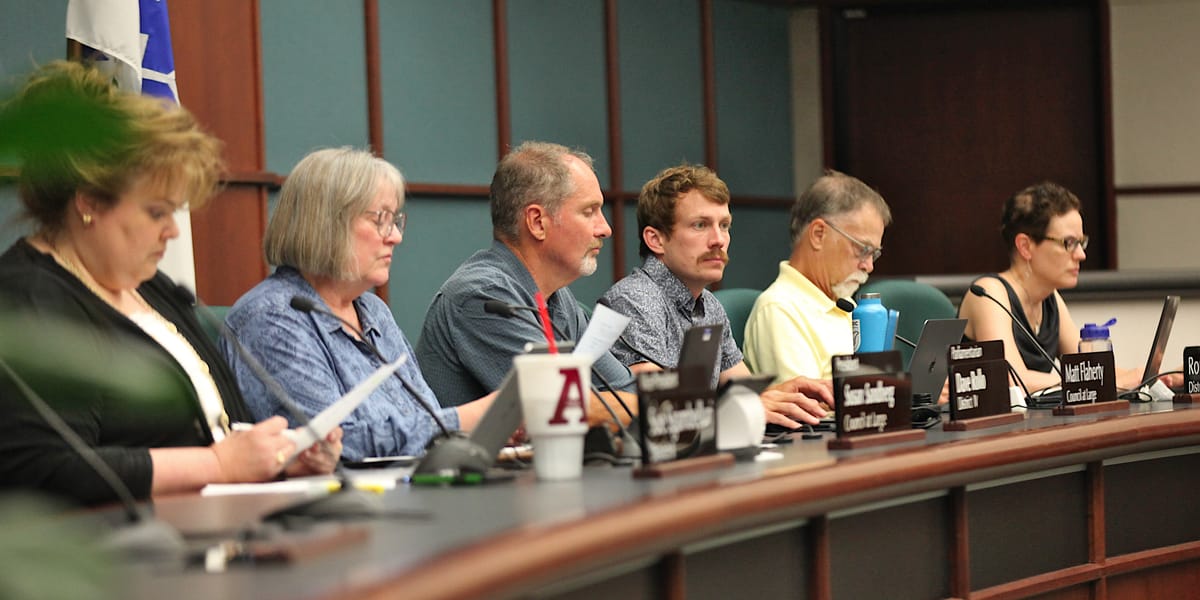
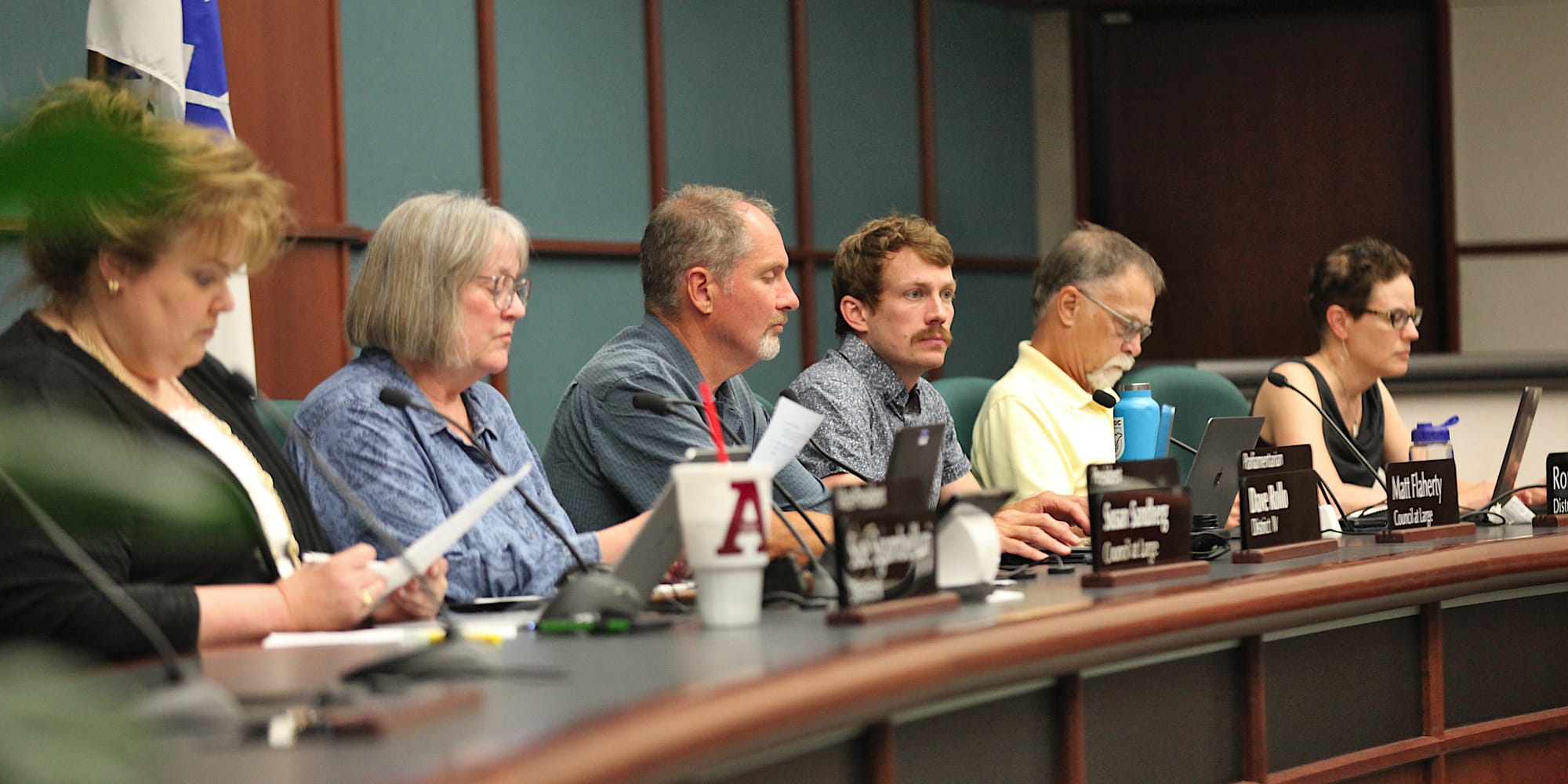
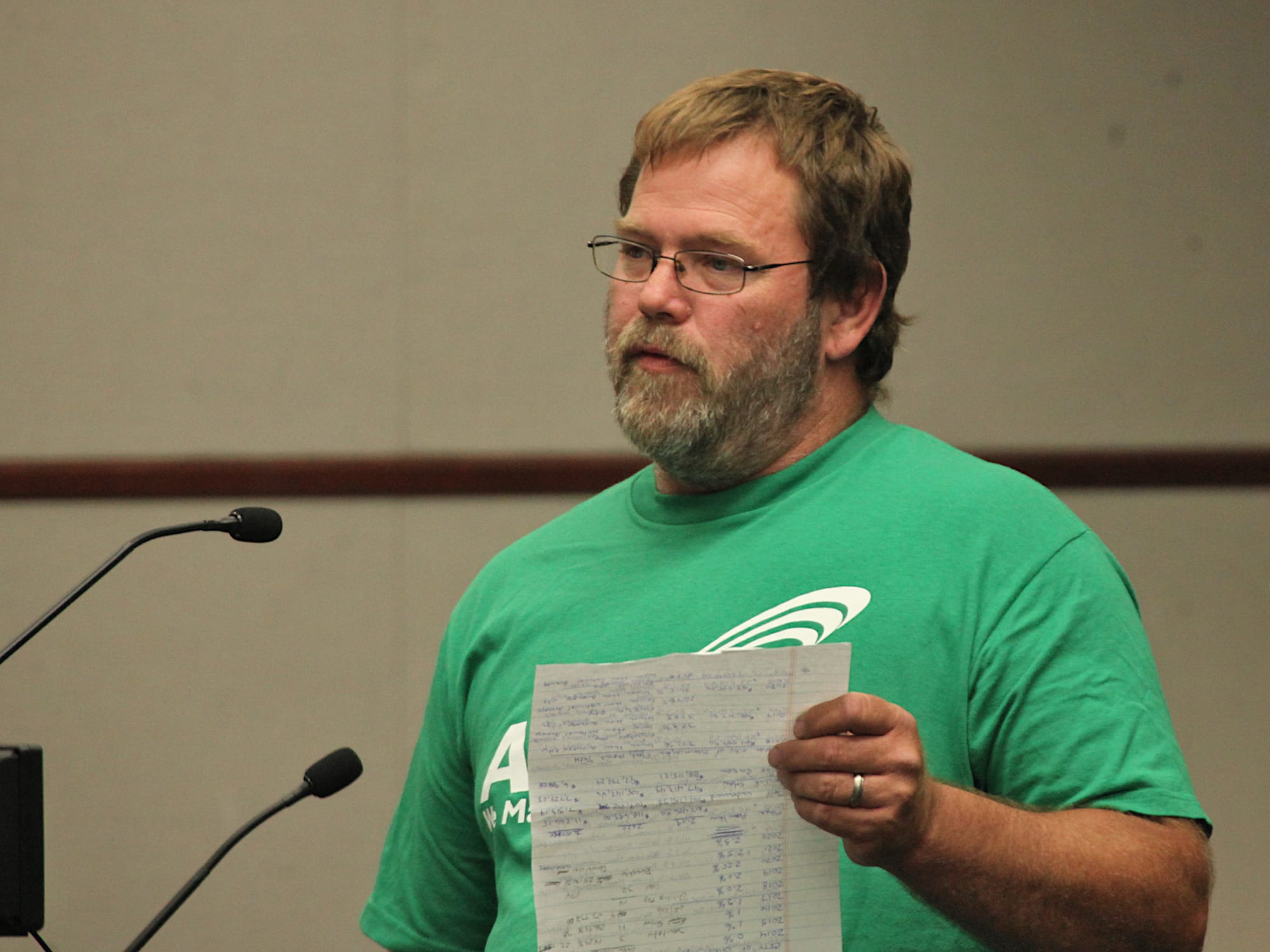
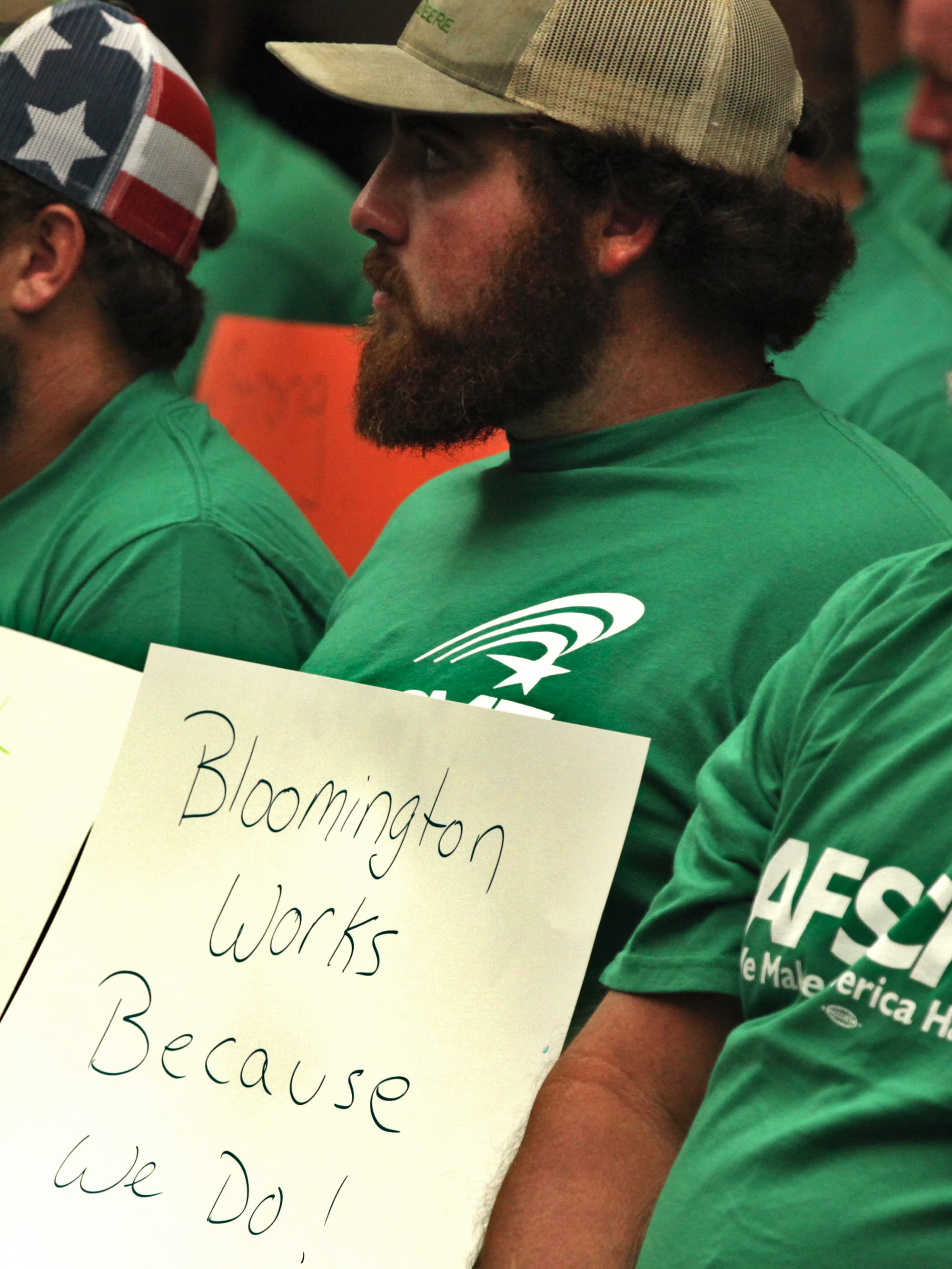

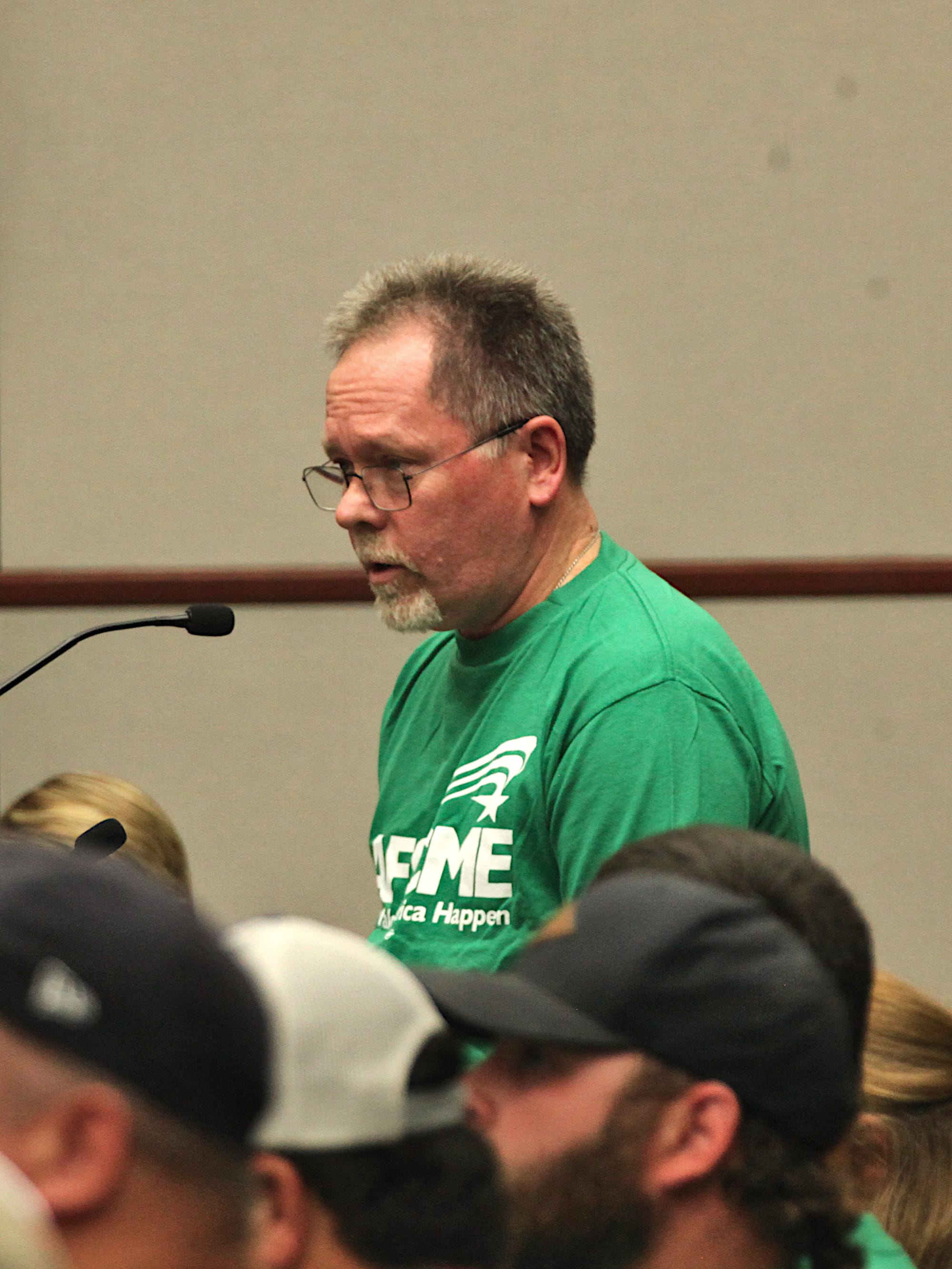
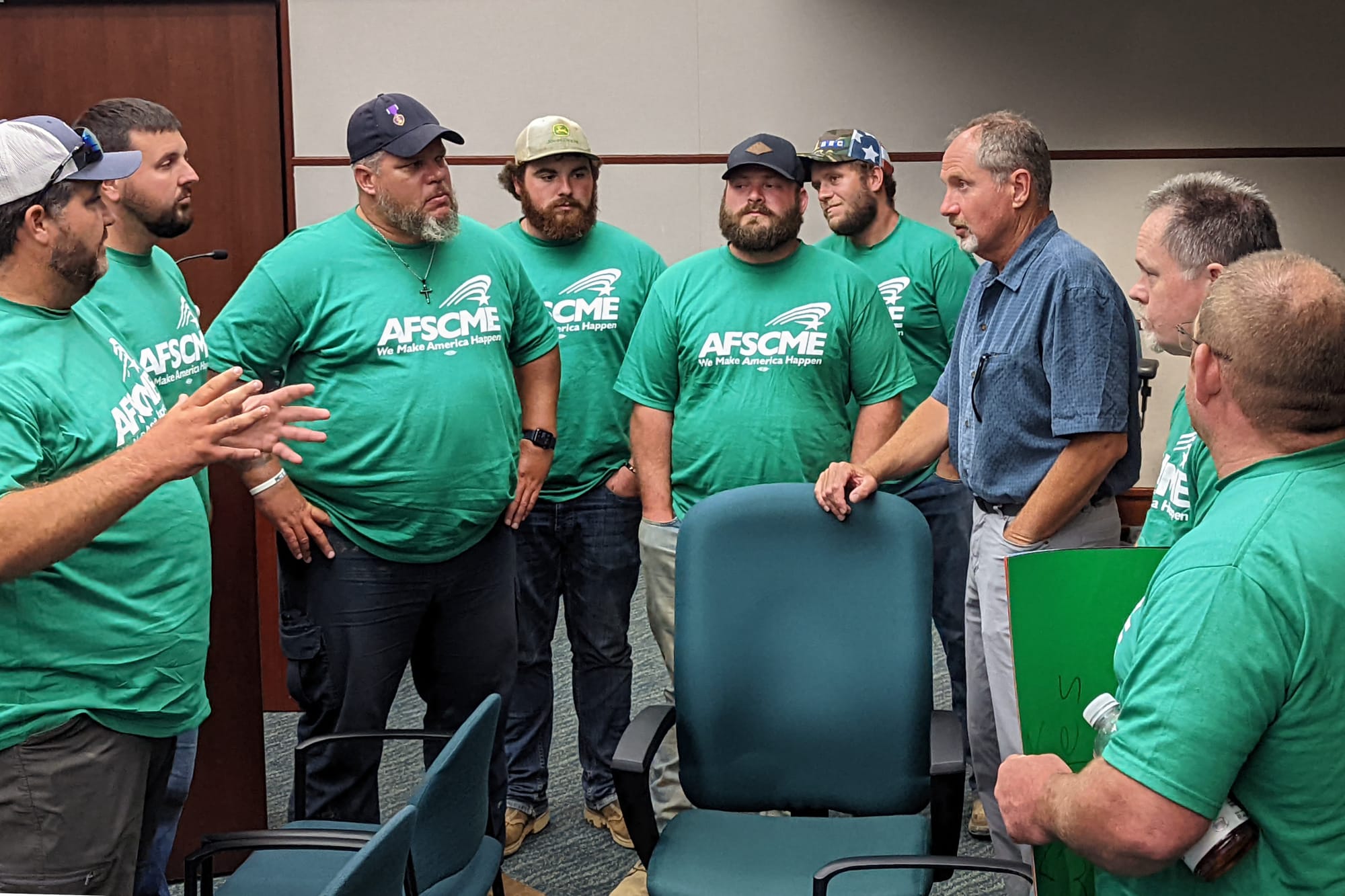
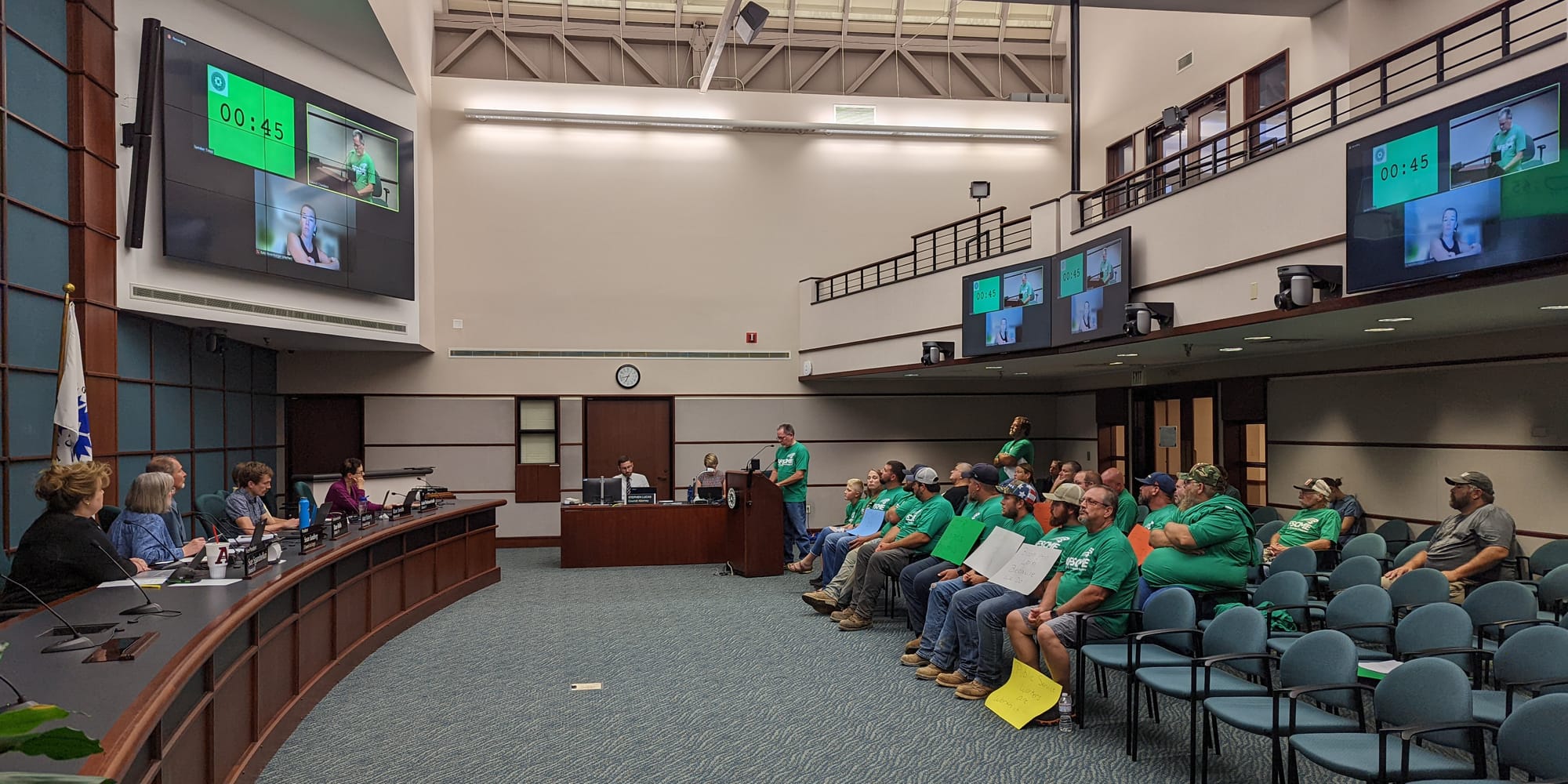
A couple dozen members of the AFSCME Local 2487 attended Bloomington’s Wednesday city council meeting, to highlight for councilmembers their ongoing collective bargaining negotiations with mayor John Hamilton’s administration—without getting into details of those talks.
As Local 2487 president Bradley Rushton put it, “I cannot discuss any aspect of the current state of affairs between the union and the city reps.”
But union members are looking for better compensation than their current four-year contract gives them. The current labor agreement runs through the end of 2022.
The acronym for the union name stands for American Federation of State, County and Municipal Employees. The union includes workers in utilities, the street and fleet divisions of public works, parks and recreation, sanitation, and the animal shelter, among others. Rushton serves the city as a fleet maintenance master technician.
Rushton led off his remarks during public commentary with a word of thanks to the city council for supporting the police union in their efforts to negotiate better compensation. In September last year, the city council passed a resolution supporting more money for police officers.
The police union is on the same four-year contractual cycle as the AFSCME workers. Earlier this year, in mid-May, the city council approved a contract with police officers that started with a 13-percent increase in the first year.
The city’s administration had made the police contract contingent on the council’s approval of an increase to the local income tax, which the council gave in early May.
Rushton told the city council that fair compensation has to address the rate of inflation.
Comparing December 2021 to December 2020, the current consumer price index (CPI) calculated by the US Bureau of Labor Statistics for the midwest region shows a 7.5-percent increase.
Comparing June 2022 to June 2021, the CPI shows a 9.5-percent increase.
Current inflation numbers are way bigger than the annual incremental raises specified in the AFSCME contract over the years.
During his turn at the public mic, AFSCME member Stephen French ticked through the percentage increases by year since 2015: 0 percent, 1 percent, 1.5 percent, 2 percent, 2 percent, 2.25 percent, 2.5 percent and 2.5 percent.
AFSCME member Steven Robertson told the council that there’s an impact of wage increases that have not kept pace with inflation: higher turnover. About the newer hires, Robertson said, “They don’t stick around long enough for me to get to know them.”
Robertson said. He added, “I feel like the city has become a training center—we hire people, we train them, we transform them into good and well-trained employees. Then the next thing, you know, they’re gone.”
Robertson gave the example of an employee who makes $22.15 an hour. That works out to about $46,000 a year or $3,800 a month. Robertson said that doesn’t sound bad, until you start subtracting taxes, medical insurance, mortgage or rent, gas, food, utility bills. Based on the costs Robertson ticked through, it worked out to $190 left in the worker’s pocket every month.
At the council dais, there were at least some friendly ears, including Dave Rollo, who spoke with AFSCME members after the meeting. Rollo told them he appreciated their remarks.
During council meetings in April and early May of this year, during the deliberations by the city council on the increase to the local income tax, Rollo asked more than once about the administration’s intentions for having employee compensation keep pace with inflation.
At the May 4 meeting, Rollo asked Bloomington mayor John Hamilton: “With this tax and funds going to essential city services, are we well positioned to compensate employees of the city in pace with cost of living increases?” Hamilton’s one-word answer: “Yes.”
At least for non-union city workers, an idea of how the administration is thinking about compensation in a high-inflation environment will come no later than a bit more than three weeks from now. Departmental presentations to the city council on the 2023 budget are scheduled for the four evenings from Aug. 29 through Sept. 1.




Comments ()